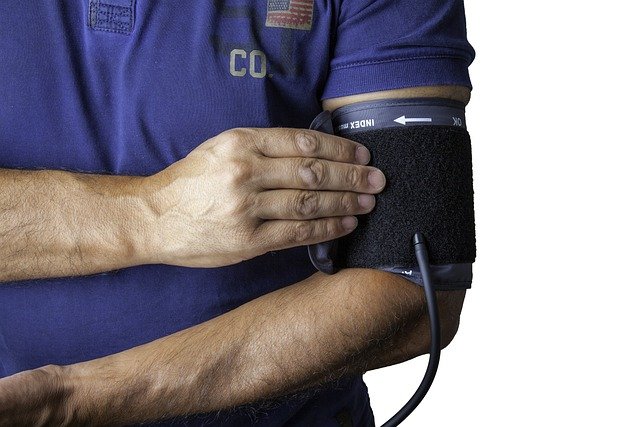Learn More About the Coronary Calcium Score Test
The coronary calcium score test stands as one of modern medicine's most valuable tools for assessing heart disease risk before symptoms appear. This non-invasive imaging procedure uses specialized CT scanning technology to detect and measure calcium deposits in the coronary arteries, providing crucial insights into cardiovascular health. Understanding this test can help individuals make informed decisions about their heart health management and prevention strategies.

A Guide to Understanding Coronary Calcium Score Results
Coronary calcium score results are presented as numerical values that correspond to specific risk categories. A score of zero indicates no detectable calcium in the coronary arteries, suggesting very low risk for heart attack in the next 10 years. Scores between 1-10 represent minimal plaque burden, while 11-100 indicates mild plaque presence with low to moderate risk.
Moderate scores ranging from 101-400 suggest moderate plaque accumulation and intermediate cardiovascular risk. High scores above 400 indicate extensive plaque buildup and significantly elevated risk for future cardiac events. Healthcare providers interpret these results alongside other risk factors including age, gender, family history, blood pressure, cholesterol levels, and smoking status to develop comprehensive treatment plans.
The percentile ranking system compares individual scores to others of the same age and gender. Being in the 75th percentile means having more calcium than 75% of people in that demographic group, indicating higher relative risk that may warrant more aggressive preventive measures.
Explore What You Need to Know About the Calcium Score Test
The coronary calcium score test procedure involves lying on a CT scanner table while the machine captures detailed images of the heart during a brief breath-hold period. The entire process typically takes 10-15 minutes, with actual scanning time lasting only seconds. No contrast dye or medications are required, making it safer than many other cardiac imaging procedures.
Preparation requirements are minimal compared to other heart tests. Patients should avoid caffeine for several hours before the test and remove metal objects that might interfere with imaging. The radiation exposure equals approximately that of a mammogram, considered minimal risk for most adults.
Timing considerations play important roles in test effectiveness. The procedure works best for adults aged 40-75 who have intermediate risk factors but no existing heart disease symptoms. Younger individuals typically show minimal calcium deposits regardless of risk, while older adults often display calcium accumulation that may not accurately reflect current risk status.
Discover Everything About Coronary Calcium Score Testing
Medical professionals recommend coronary calcium scoring for specific patient populations where traditional risk assessment tools provide unclear guidance. Ideal candidates include individuals with family histories of early heart disease, those with borderline cholesterol levels, or patients with multiple modest risk factors that collectively suggest elevated cardiovascular risk.
The test proves particularly valuable for people considering statin therapy or other preventive medications. Results can help determine whether aggressive treatment benefits outweigh potential risks and side effects. Additionally, calcium scoring can motivate lifestyle changes by providing concrete evidence of cardiovascular risk that patients can visualize and understand.
Healthcare providers integrate calcium score results with established risk calculators and clinical guidelines to develop personalized prevention strategies. High scores often lead to recommendations for statin therapy, blood pressure management, diabetes control, and lifestyle modifications including diet changes, exercise programs, and smoking cessation support.
Understanding Test Limitations and Considerations
Coronary calcium scoring has important limitations that patients should understand. The test cannot detect soft plaque deposits that haven’t calcified, potentially missing some forms of vulnerable plaque. Additionally, calcium scores reflect cumulative plaque buildup over time rather than current plaque stability or rupture risk.
Certain populations may not benefit significantly from calcium scoring. People already diagnosed with coronary artery disease, those at very low or very high cardiovascular risk, and individuals unwilling to modify treatment based on results may find limited value in testing. Young adults under 40 rarely show measurable calcium deposits regardless of risk factors.
Cost considerations vary significantly by location and healthcare coverage. Many insurance plans don’t cover calcium scoring for screening purposes, leaving patients responsible for out-of-pocket expenses. However, the relatively low cost compared to other cardiac procedures makes it accessible for many individuals seeking additional risk assessment information.
Clinical Applications and Treatment Implications
Coronary calcium scores influence treatment decisions across multiple areas of cardiovascular care. Physicians use results to determine appropriate statin therapy intensity, blood pressure targets, and frequency of follow-up monitoring. High scores may prompt additional testing such as stress testing or cardiac catheterization in symptomatic patients.
The test results also impact lifestyle counseling approaches. Patients with elevated scores often receive more intensive dietary counseling, structured exercise programs, and comprehensive smoking cessation support. Some healthcare providers use calcium scores to demonstrate the importance of adherence to prescribed medications and lifestyle modifications.
Research continues exploring calcium scoring applications in special populations including diabetics, chronic kidney disease patients, and individuals with inflammatory conditions. These groups may benefit from modified interpretation criteria and different treatment thresholds based on their unique cardiovascular risk profiles.
Understanding coronary calcium scoring empowers individuals to participate actively in cardiovascular risk assessment and prevention planning. While the test provides valuable information, it works best when combined with comprehensive clinical evaluation and shared decision-making between patients and healthcare providers. Regular follow-up and adherence to recommended treatments remain essential components of effective heart disease prevention regardless of calcium score results.
This article is for informational purposes only and should not be considered medical advice. Please consult a qualified healthcare professional for personalized guidance and treatment.




